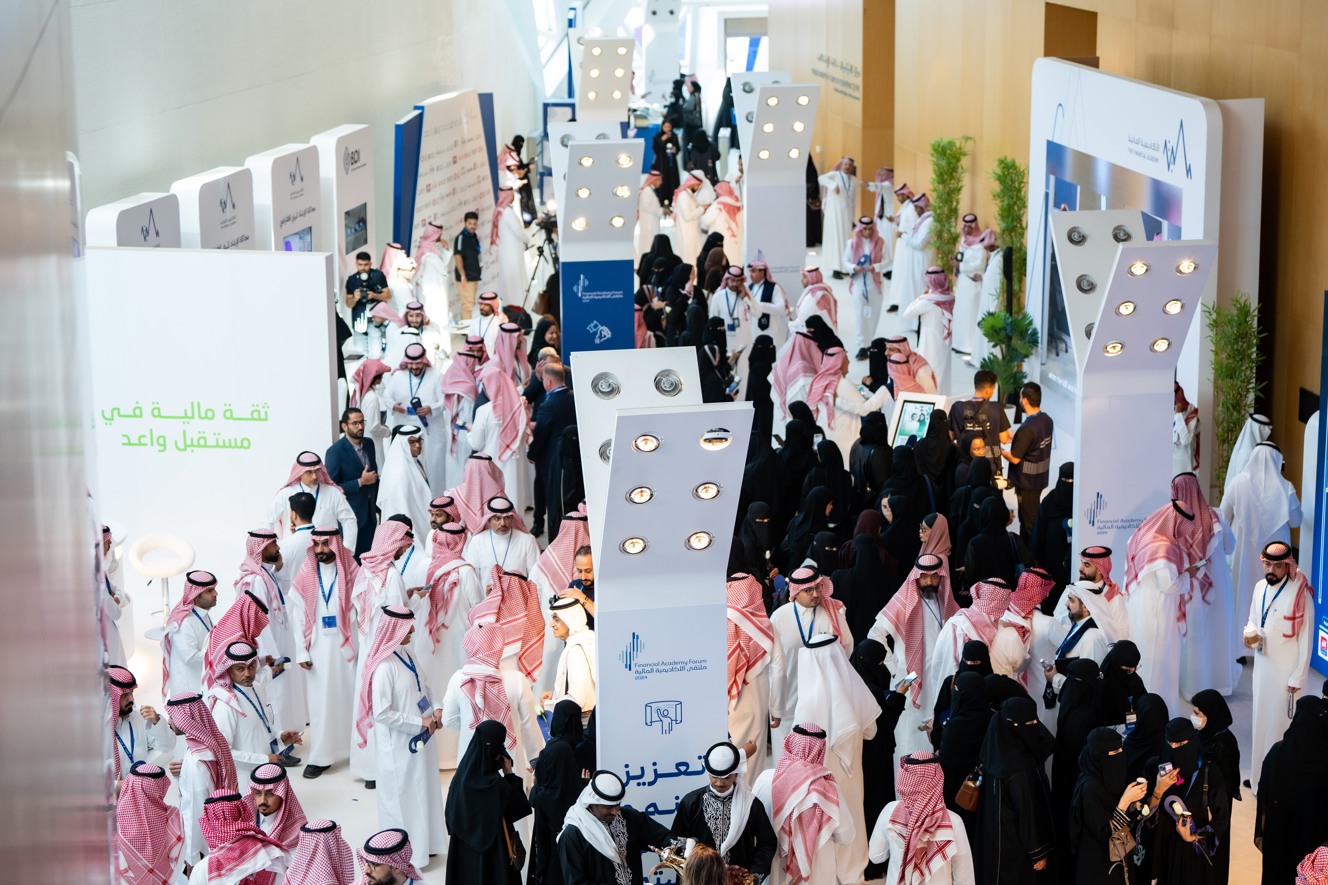
The third edition of the Financial Academy Forum 2024 concluded Wednesday, October 9, with the attendance of more than 3,000 financial industry stakeholders, including decision makers, CEOs, experts and professionals.
The forum featured a number of panel sessions, with the first one addressing the theme of Thriving through Rapid Changes: Building a Culture of Continuous Learning, where participants discussed strategies for adopting the culture of continuous learning, leveraging technology to enhance learning experience, the role of innovation in improving the competitiveness of organizations, methodologies for integrating learning into the objectives of organizations, and developing the human capital.
During this session, Ali Almansour, CEO and Managing Director of SAB Invest, said that there is an increase in studies measuring the impact of continuous learning and the importance of using technology in the finance industry, indicating that profits of companies that adopt new technologies hiked by up to 20% compared to other businesses that have not yet. He stressed that real productivity is to invest in skills and develop employees to cope with the changes underwent by the industry across the globe.
Likewise, Umar Al Mahmoud, CEO of Medgulf, pointed out that the insurance market is experiencing a critical stage, after becoming part of the technology era, noting that profits made by businesses that resist technology will be very limited, versus those that invest in continuous learning of their employees. He added that the Saudi government sectors have been digitalized, stressing the need to use the digital future to fill the gaps in the financial sector. Al Mahmoud praised the Saudi banks’ experience in this regard.
On his part, Dr. Francois Ortalo, Dean of London Business School, said he is impressed by the progress achieved by Saudi financial institutions under the ambitious Vision 2030, which works for future and is expected to pay off in the years ahead.
Tariq Al Sudairy, CEO and Managing Director at Jadwa Investment, presented his own vision for addressing the challenges that hinder the progress of the financial sector’s staff. He suggested that such issues can be handled by providing training that is supported by budgets and plans for each employee, so that the development process becomes an essential part of the organization's annual KPIs.
The second panel session dealt with the title of “AI-Powered as a Tool for Improving Employee Experience and Boosting Productivity in Modern Workplaces.” Speakers in this session handled various topics such as leveraging AI-powered solutions to improve the employee experience, improve work environment, and boost productivity, prominent AI-driven technologies for enhancing training and development outcomes and utilizing analytical AI to measure workplace impact.
In this context, May Al Hoshan, Chief Human Capital Officer at Banque Saudi Fransi, highlighted the importance of learning virtual reality to cope with the technology updates. She explained that it is an effective way to opening broad horizons, noting that the results of AI seen today are just a small fraction of what will happen in the coming years. May underlined the need to be resilient to changes and to replace jobs that are no more compatible with the new reality, in order to meet the future AI requirements.
Head of HR Group at the Arab National Bank, Badr Al Otaibi, stated that his organization utilizes AI to effectively improve decision making and customer experience as well as automating many services. He recommended that the technology should be leveraged to increase productivity and introduce innovation to financial systems.
Adding to the above, Hassan Hammad, Group Chief Human Resources Officer at the Saudi National Bank, said that one of the most key drives of inspiration is the desire to make a difference, stressing the need to equip employees with better qualifications and skills, and encourage them to join AI courses even if they are not relevant to their roles.
Hatem Al Balla, Assistant Undersecretary of Skills and Training, Ministry of HR and Social Development, stated that AI is one of the essential solutions for dealing with big data. Other solutions include, he added, developing human capabilities, responding to work requirements, and facilitating decision-making processes through a set of tools that is updated day by day.
During the final session of the Financial Academy Forum, experts and officials addressed the theme of “the Role of Training and Development (T&D) and Talent Development in Navigating Sustainability,” covering several topics like strategies for integrating sustainability into talent development; exploring innovative models to identify skills essential for fostering a sustainable culture within organizations; and key tools to address ongoing environmental and social challenge
Dr. Abdulrahman Al-Mutairi, Senior Vice President of People Development at Riyad Bank, noted that sustainability is actually an important strategic direction, dubbing it as a journey with exceptional dimensions whose impacts are experienced after years. He concluded that, to achieve sustainability, a package of measures should be implemented within organizations including training, motivation, encouragement, support and recognition.
Dr. Ghada Ahmed Bin Baz, Executive Director of Human Capital and Admin Affairs at the Insurance Authority, said that after launching the Kingdom’s Vision 2030, organizations have become increasingly interested in sustainability. She explained that sustainability guarantees the survival of these institutions and the permanent growth of their production, which is evidently reflected by megaprojects seen every day. The impact of sustainability on organizations can be seen in the vital accomplishments and alliances realized as part of the organization’s pursuit of raising their efficiency and improving the capabilities of their human capital, Ghada added.
Gill White, Executive Director of Member Engagement and Learning at Chartered Insurance Institute (CII), called on the organizations to pay attention to sustainability. She noted that governance has proven to be of great merit in terms enhancing competencies, qualifying employees, and caring for talents, adding that having permanent and sustainable development programs in place is one of the most effective ways for ensuring talent retention.
Finally, Ibrahim Al Howish, Chief Human Capital and Corporate Affairs Officer at Al Rajhi Takaful, said the organizations need to adopt digital transformation and ethical leadership in order to boost their sustainability. They also should take financial training and development to a level consistent with the requirements of the era and the latest global systems in the field, he advised.
The forum’s third edition, held under the theme of “Sustainable Talent Growth”, is a vital and unique gathering for industry decision makers and stakeholders. It hosted more than 15 professional speakers from various financial sectors, in addition to 16 strategic partners and leading institutions, whose presence reflects the strong cooperation between different parties in promoting the development and prosperity of the financial sector.
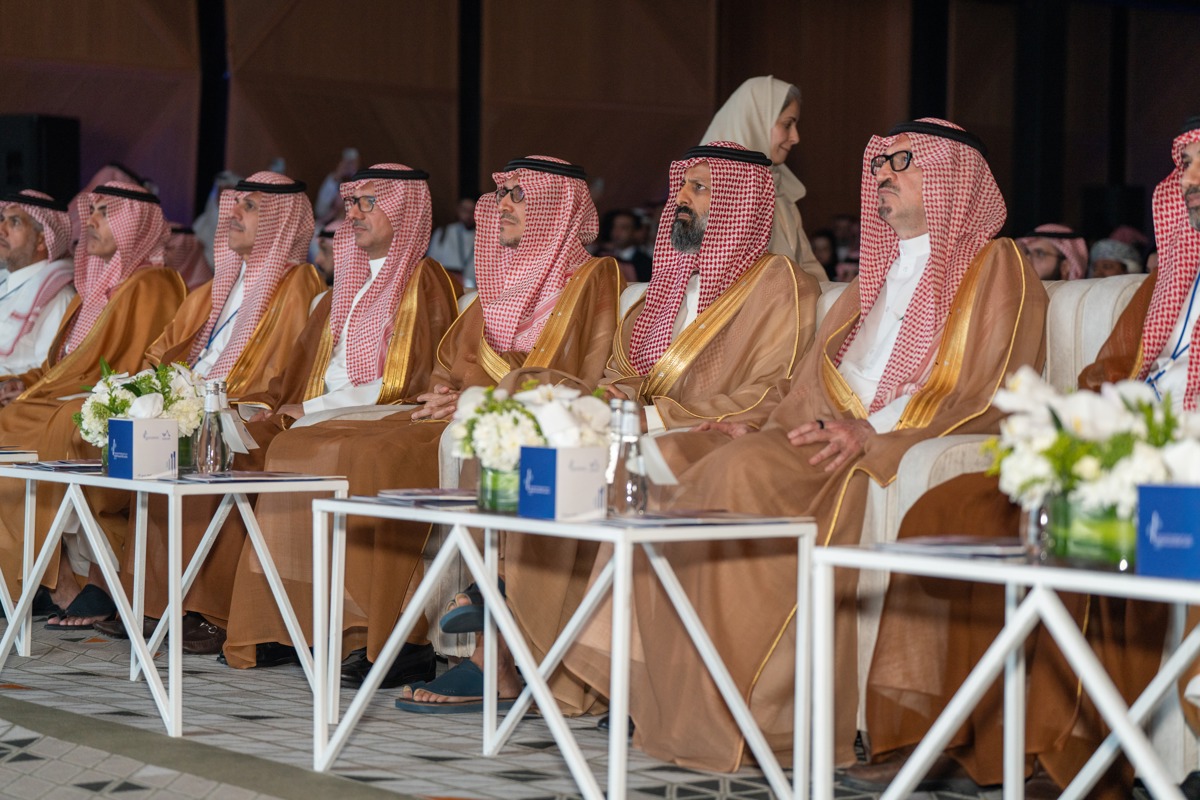
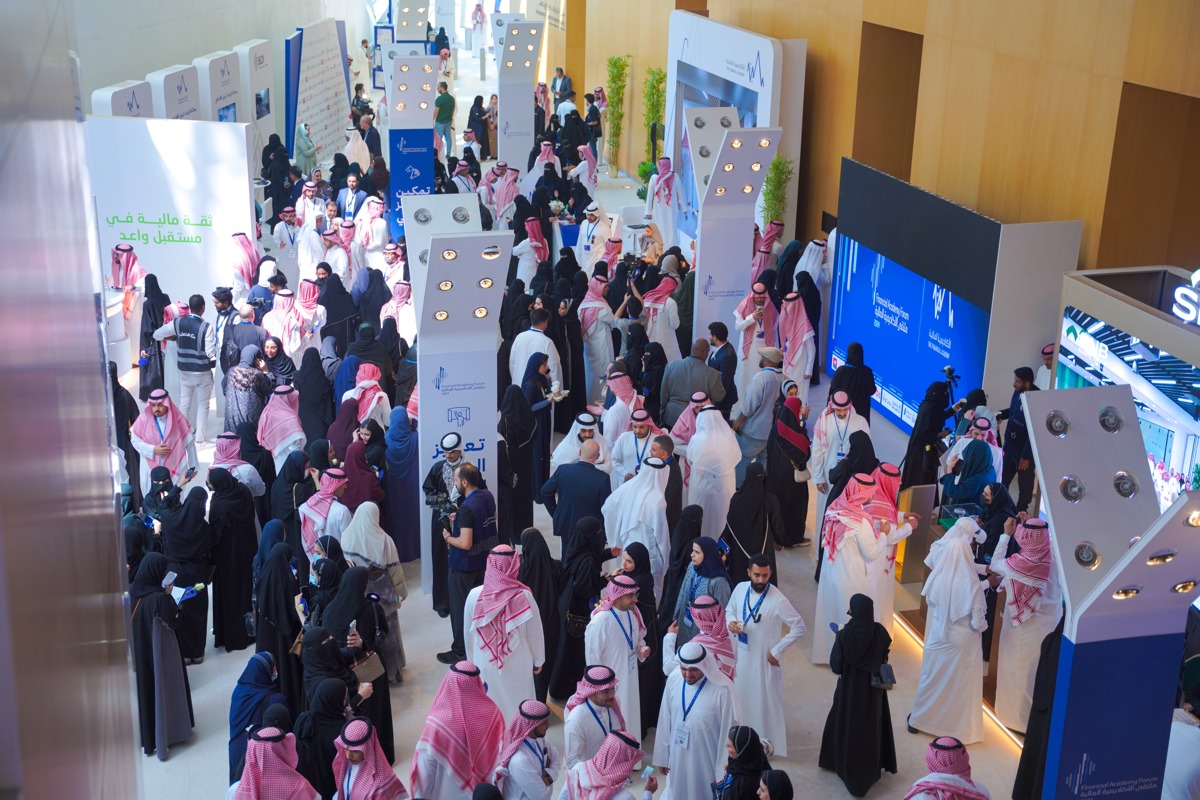
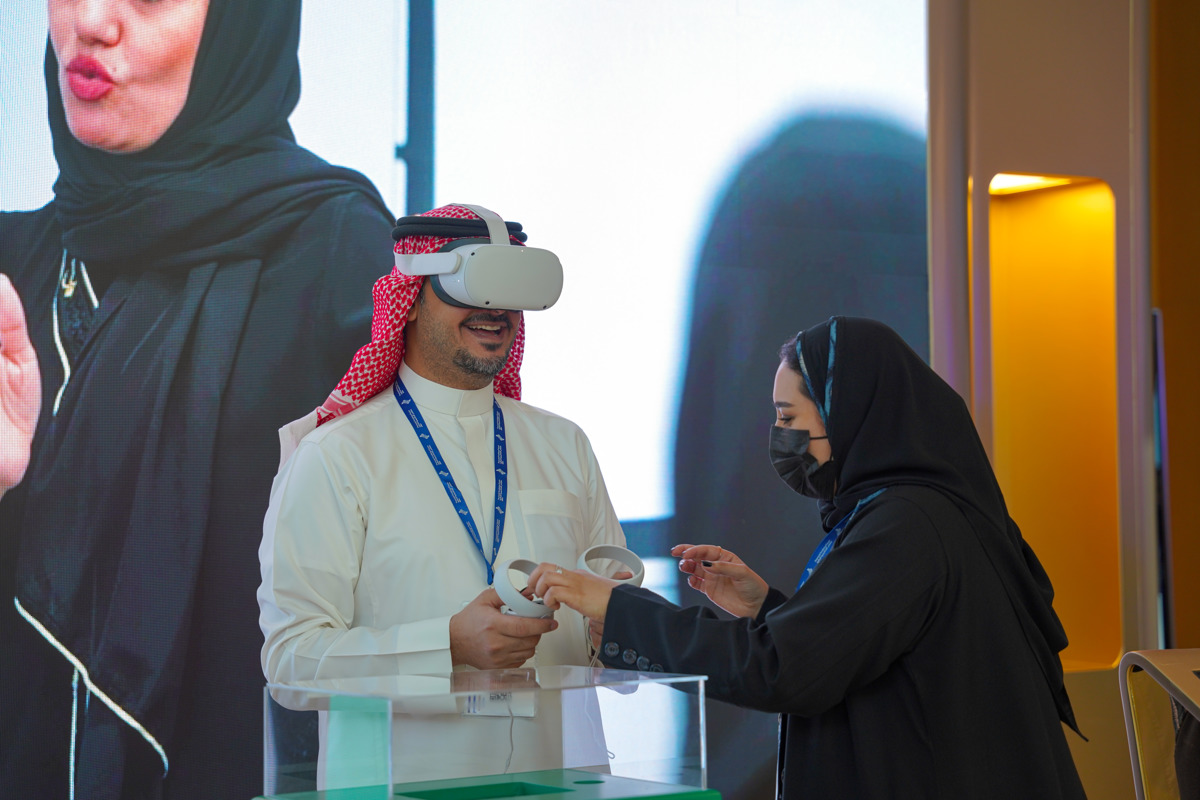
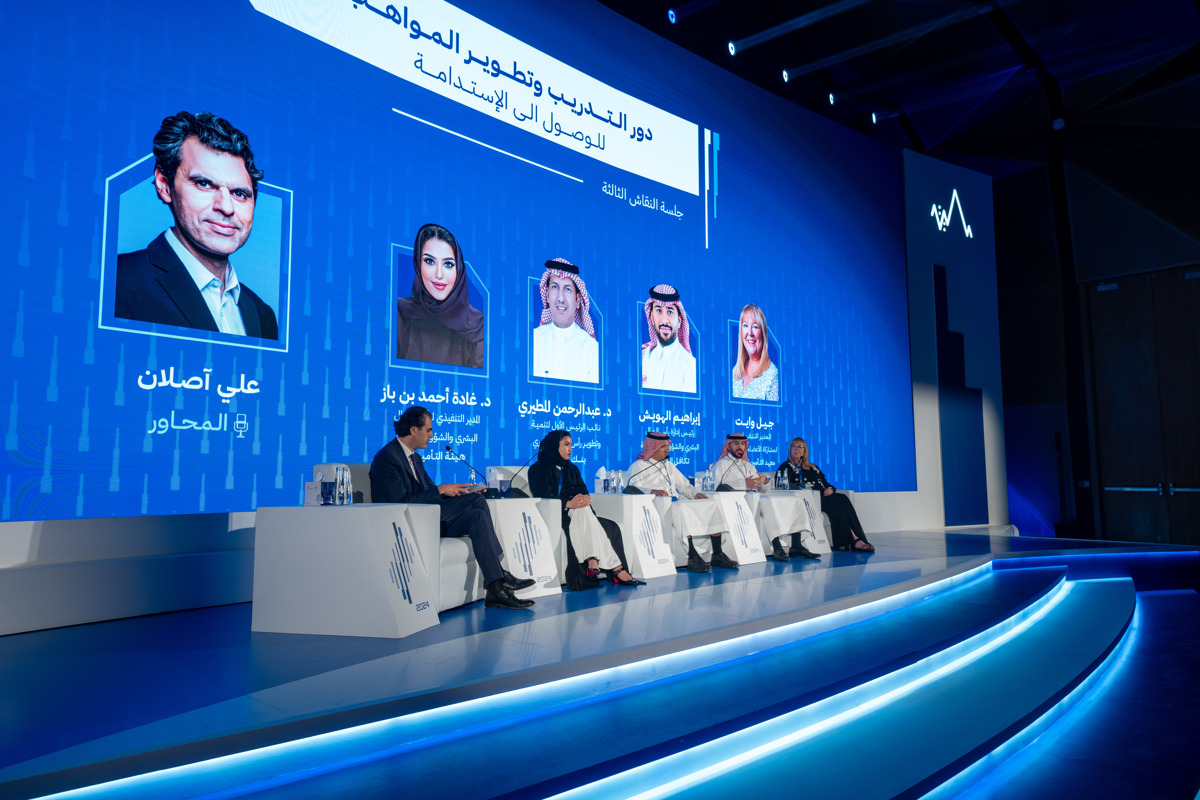


Add Comment